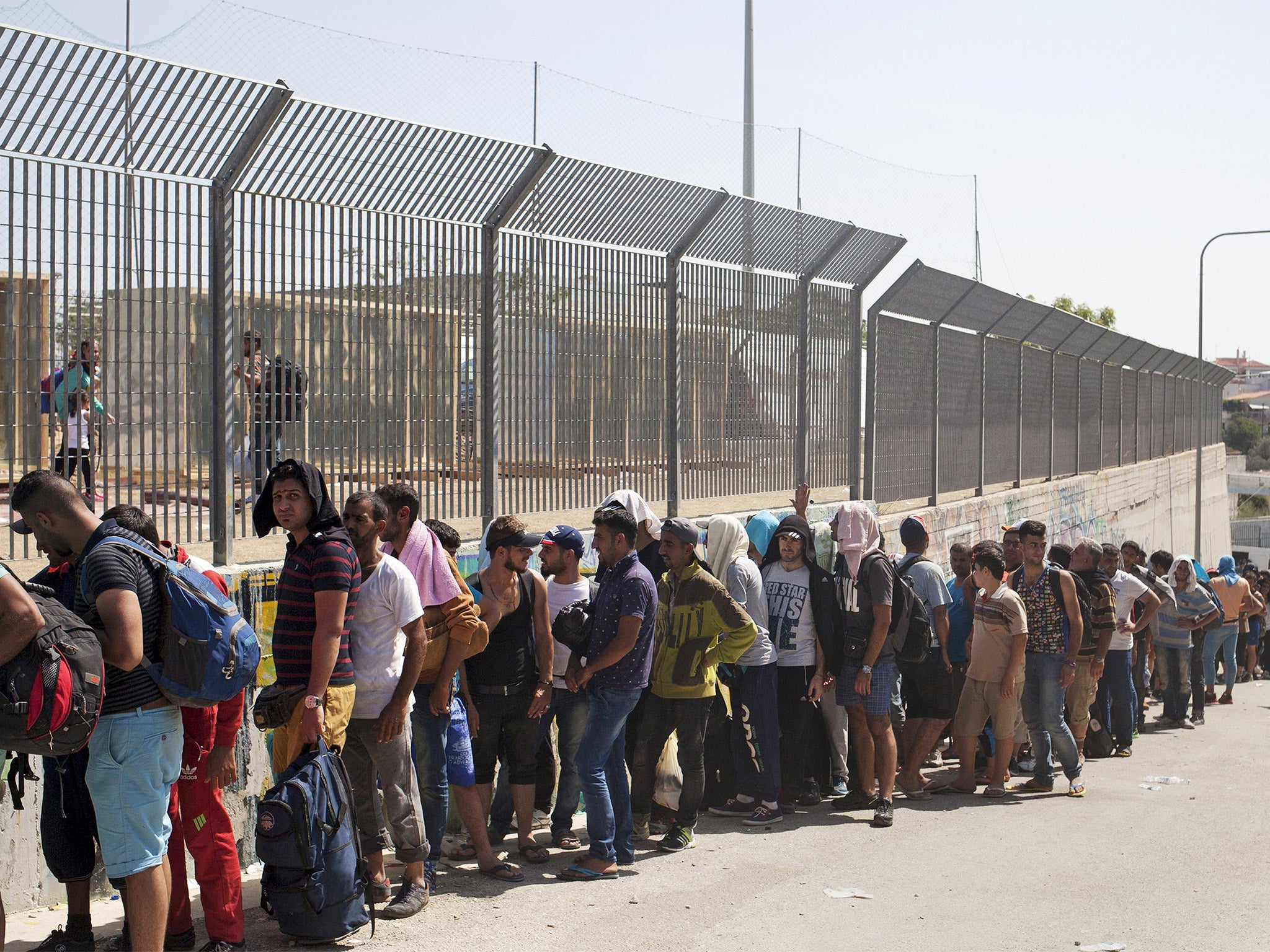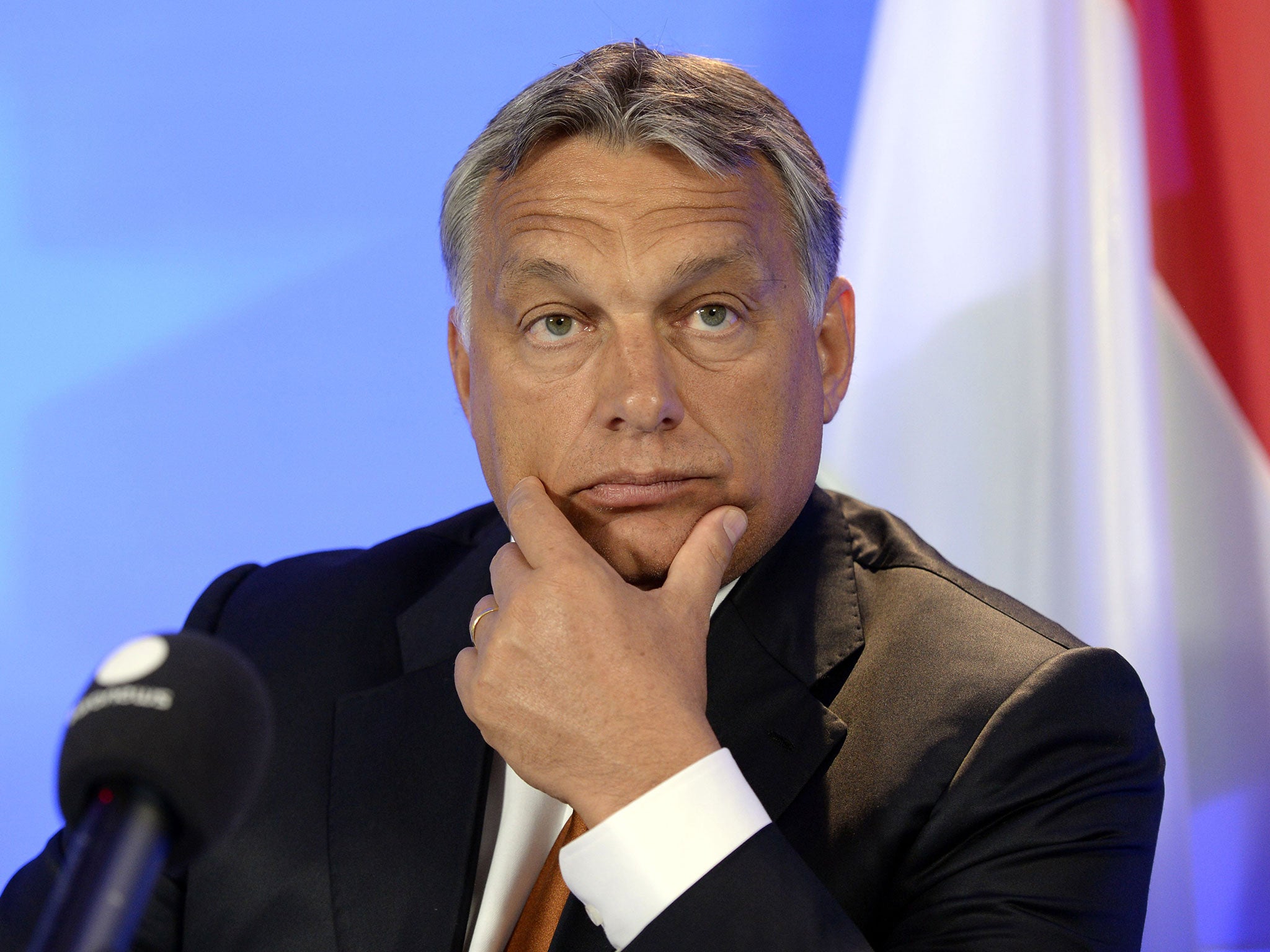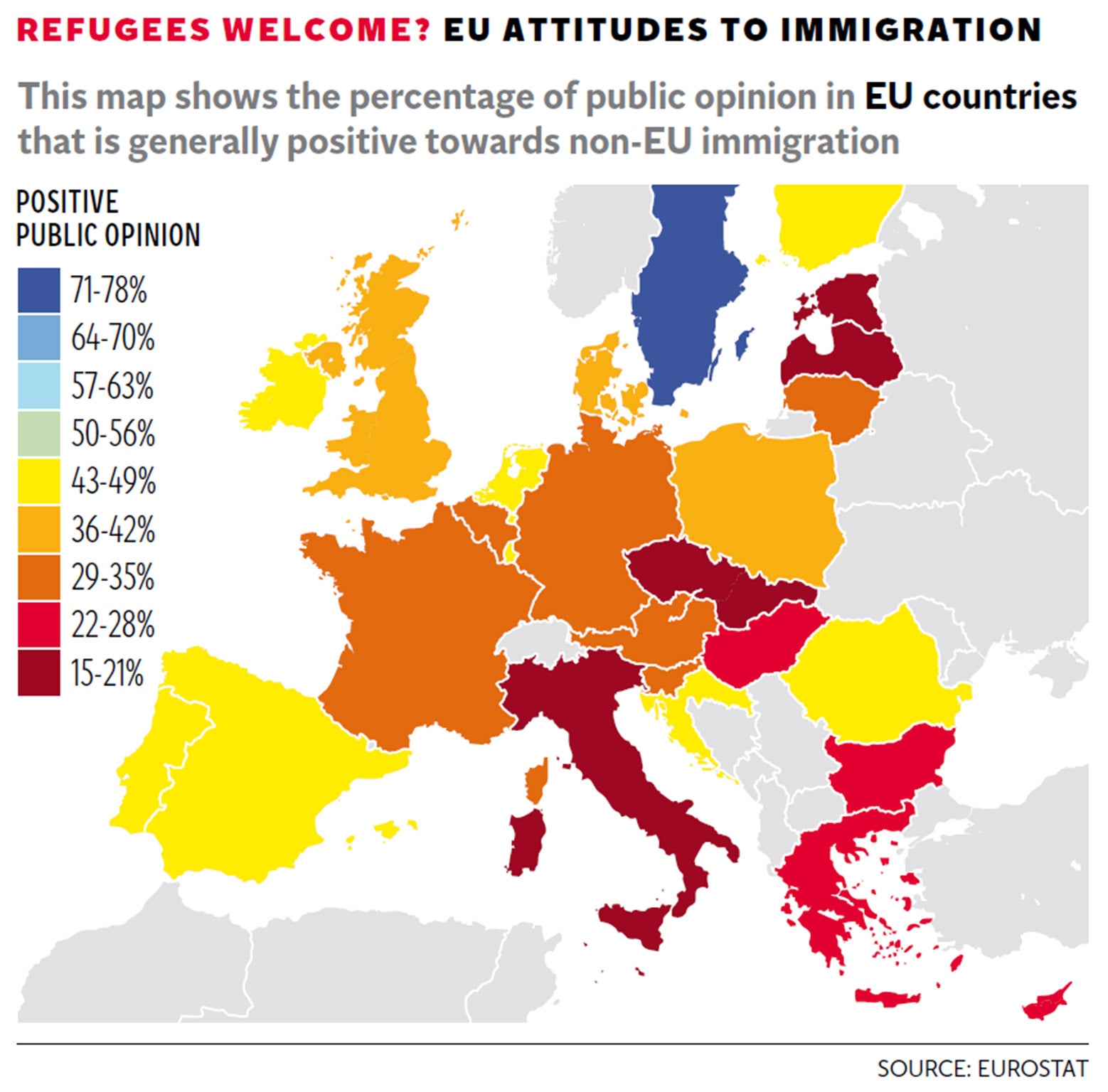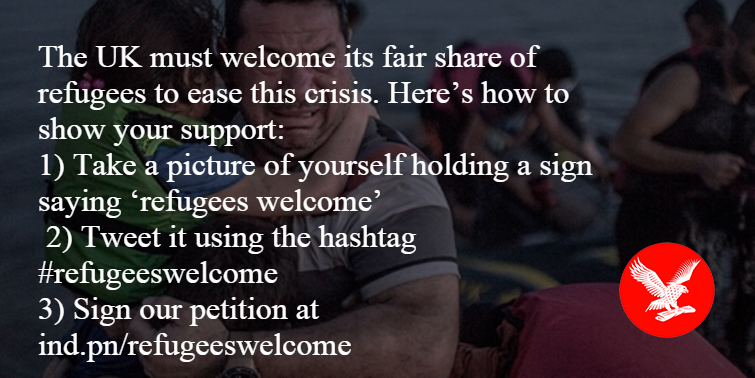Refugee crisis: EU to vote through quota plan despite opposition from Eastern Europe
Britain has the right not to take part in the scheme, and says it will opt out

Your support helps us to tell the story
From reproductive rights to climate change to Big Tech, The Independent is on the ground when the story is developing. Whether it's investigating the financials of Elon Musk's pro-Trump PAC or producing our latest documentary, 'The A Word', which shines a light on the American women fighting for reproductive rights, we know how important it is to parse out the facts from the messaging.
At such a critical moment in US history, we need reporters on the ground. Your donation allows us to keep sending journalists to speak to both sides of the story.
The Independent is trusted by Americans across the entire political spectrum. And unlike many other quality news outlets, we choose not to lock Americans out of our reporting and analysis with paywalls. We believe quality journalism should be available to everyone, paid for by those who can afford it.
Your support makes all the difference.A fourfold increase in the number of refugees to be distributed around the European Union is likely to win the backing necessary to take effect, despite noisy resistance from Eastern European states.
The plan for a binding quota, with fines for countries that refuse to take their share of the total of 160,000 refugees, will be outlined by the European Commission President Jean-Claude Juncker on Wednesday in his first State of the Union speech to the European Parliament in Strasbourg.
The scheme is a revamp of his plan, unveiled in May, to spread 40,000 refugees more evenly around Europe. The draft plans redistribute almost three-fifths of the 120,000 new refugees to just three member states: Germany (31,443, or 26.2 per cent), France (24,031, or 20 per cent and Spain (14,931 or 12.4 per cent).
Mr Juncker’s proposal represents the EU’s biggest response yet to the surge of refugees and economic migrants over the past few months. It comes after the German Chancellor Angela Merkel and French President François Hollande jointly called last week for a new refugee relocation plan. The plan will be discussed by EU justice and home affairs ministers in Brussels on Monday.
Britain, which has the right not to take part in the scheme, has said it will opt out, but it will contribute to its costs through the EU’s Asylum, Migration and Integration Fund. At the same time, the Prime Minister David Cameron has proposed taking in 4,000 refugees a year over five years. By contrast, under the EU’s division of just the extra 120,000 refugees, Poland will take in a further 9,287, the Netherlands 7,214, Romania 4,646, Belgium 4,564, and Sweden 4,469.
The plan is expected to be backed by the necessary “super-majority” combination of the 25 member states obliged to collaborate under EU law, plus Ireland, which has waived its opt-out. But it is already creating splits between the EU’s east and west, and member states from Eastern Europe and the Baltic have indicated their vehement opposition to taking part.
In response, EU officials have floated the idea of sanctions on those that do not want to take their share of refugees, compelling them to pay into a fund used to subsidise other countries in the scheme.
Most resistant are Poland, Hungary, the Czech Republic and Slovakia, which said in a joint statement last week that “the introduction of mandatory and permanent quotas ... would be unacceptable”.

The Hungarian Prime Minister Viktor Orban has said he does not want to change his country’s cultural and ethnic make-up. “If Hungarians decided, ‘No, thank you,’ nobody has the right tell us to change,” Mr Orban said.
The Slovak Prime Minister Robert Fico has dismissed as “irrational” the plan. “Migrants arriving in Europe do not want to stay in Slovakia. They don’t have a base for their religion here, their relatives. They would run away anyway,” he said. Slovakia, Poland and Cyprus have indicated they will accept only Christian refugees.
But other countries have warned that opt-outs should have a cost. Belgium’s State Secretary for Migration Theo Francken has called on Eastern European countries to do more “burden sharing”. “It can’t be the case that they are for social and economic solidarity, but not for asylum solidarity,” he said, while suggesting suspending EU farm subsidies for countries that refuse to accept more refugees.
The new quotas apply the same metrics used by the Commission in May when it suggested an EU-wide relocation of 40,000 refugees. They take account of factors such as the country’s population, gross domestic product and unemployment rate as well as the number of asylum places it had already offered.
That proposal covered mainly Syrian and Eritrean refugees who had arrived in Italy and Greece, but the new quotas – which are mandatory – recognise that Hungary has now become a third major point of entry. The Commission is also planning to pay member states up to €6,000 (£4,365) for each refugee taken in.

Under the proposal, relocated refugees cannot choose their final EU destination. They will also have to remain in the country to which they are eventually sent, and will not be allowed to move around Europe to live and work as EU citizens can. In addition, Mr Juncker’s proposal will broaden the list of countries to which the EU will say refugees can safely be returned without fear of political persecution. This safe list will include Turkey and the western Balkans – from where a significant number of migrants have entered the EU.
However, human rights groups have warned that the continuing conflicts in trouble spots like Syria mean that Europe should go much further in offering asylum to refugees.
“The pledges are being offered are nowhere near enough,” said Iverna McGowan, the acting director of Amnesty International’s European institutions office. “We need an emergency relocation system, which should match the will and need of those who are coming in, and the right to family reunions. When you see how risky these journeys are, that should dispel the notion that these are freeloaders.”

Subscribe to Independent Premium to bookmark this article
Want to bookmark your favourite articles and stories to read or reference later? Start your Independent Premium subscription today.
Join our commenting forum
Join thought-provoking conversations, follow other Independent readers and see their replies
Comments